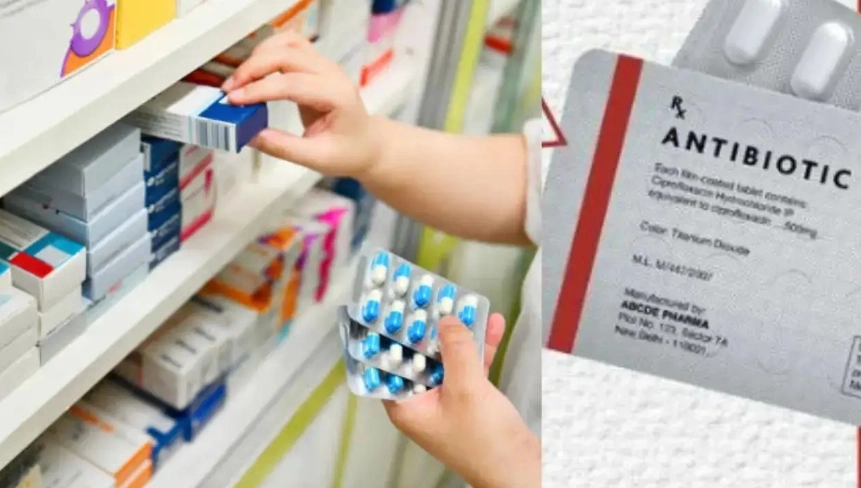Why Has the Health Ministry Warned Against Taking Medicines With a Red Line? Know All About Antibiotic Resistance

The Union Health Ministry has warned against taking medicines with a red line, saying that they should not be consumed without medical advice, as it could lead to antibiotic resistance. Antibiotic resistance occurs when bacteria change so that antibiotic medicines are not able to kill them or stop their growth. As a result, bacterial infections have become extremely difficult to treat.
Antibiotic resistance is a type of antimicrobial resistance in which fungi, parasites, and viruses can also develop drug resistance. “️Misuse of antibiotics can lead to antibiotic resistance, making infections harder to treat. Always consult a medical professional before use,” notes from the Health Ministry read on social media sites, including Instagram and X (formerly Twitter).
What happens if you have antibiotic resistance?
Doctors say your body does not develop antibiotic resistance, but bacteria do. When antibiotic resistance happens, fewer antibiotics become effective against a particular bacterium. Other antibiotics often help, but it is also important to have as many treatment options available as possible. It’s also important to begin effective treatment as quickly as possible for serious infections. If it takes longer for providers to find a medication that will treat an antibiotic-resistant infection, the outcome can be more serious.
Antibiotic resistance is a dangerous phenomenon because it reduces treatment options for those who are sick, apart from delaying effective treatment. As a result, you may face:
- Increased risk of severe, extended illness or death.
- Severe medication side effects.
- Longer hospital stays.
- More medical appointments.
- Increased medical costs.
While health experts have been working to fix antibiotic resistance, it is not easy to fix it, and by learning about it, you can take action to protect yourself.
What usually causes antibiotic resistance?
Bacteria naturally become resistant to medications over time. But certain factors can speed up the process, including:
Taking too many antibiotics
Doctors say that if you continue to take antibiotics when you do not even need them, it contributes to antibiotic resistance. For example, it is a belief that a virus causes sore throats, and people take antibiotics for it. However, that is not the case.
Misuse
Bacteria take advantage of any opportunity to multiply. If you forget to take one or more antibiotic doses, stop treatment too soon, or use someone else’s medicine, bacteria will start reproducing. As they multiply, they can mutate and become increasingly resistant to medicine.
Spontaneous resistance
Many times, the DNA of a bacterium changes or mutates on its own. The antibiotic does not recognise this newly changed bacterium and cannot target it the way it should.
Transmitted resistance
You can pass a contagious drug-resistant bacterial infection to someone else who may have an infection that won’t respond to an antibiotic.
Ways to combat antibiotic resistance
A few ways you can stop the resistance to antibiotics include:
Practice good hygiene
To protect yourself from infection, you need to first follow good hygiene practices, which include washing your hands with soap and water regularly.
Only take antibiotics when prescribed
Antibiotics do not work against viral infections, and so, only take them when the doctors suggest.
Take all recommended vaccines
At present, there are not many vaccines for bacteria that cause antibiotic-resistant infections. However, the pneumococcal vaccine protects you against pneumococcal disease caused by
S. pneumoniae. The vaccine is crucial for many groups of people, especially children under age 2 and adults age 65 and older.
 The Union Health Ministry has warned against taking medicines with a red line, saying that they should not be consumed without medical advice, as it could lead to antibiotic resistance. Antibiotic resistance occurs when bacteria change so that antibiotic medicines are not able to kill them or stop their growth. As a result, bacterial infections have become extremely difficult to treat.
The Union Health Ministry has warned against taking medicines with a red line, saying that they should not be consumed without medical advice, as it could lead to antibiotic resistance. Antibiotic resistance occurs when bacteria change so that antibiotic medicines are not able to kill them or stop their growth. As a result, bacterial infections have become extremely difficult to treat.